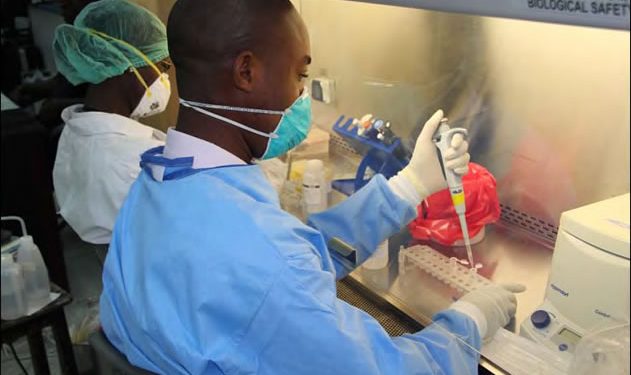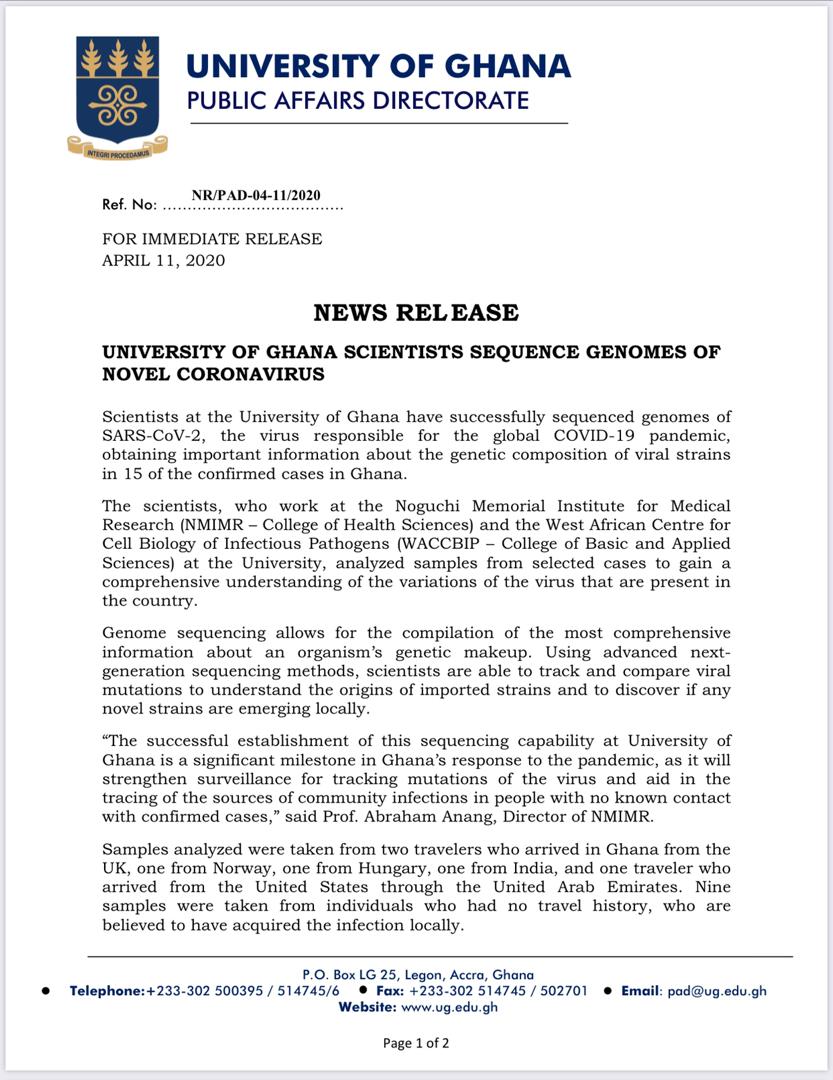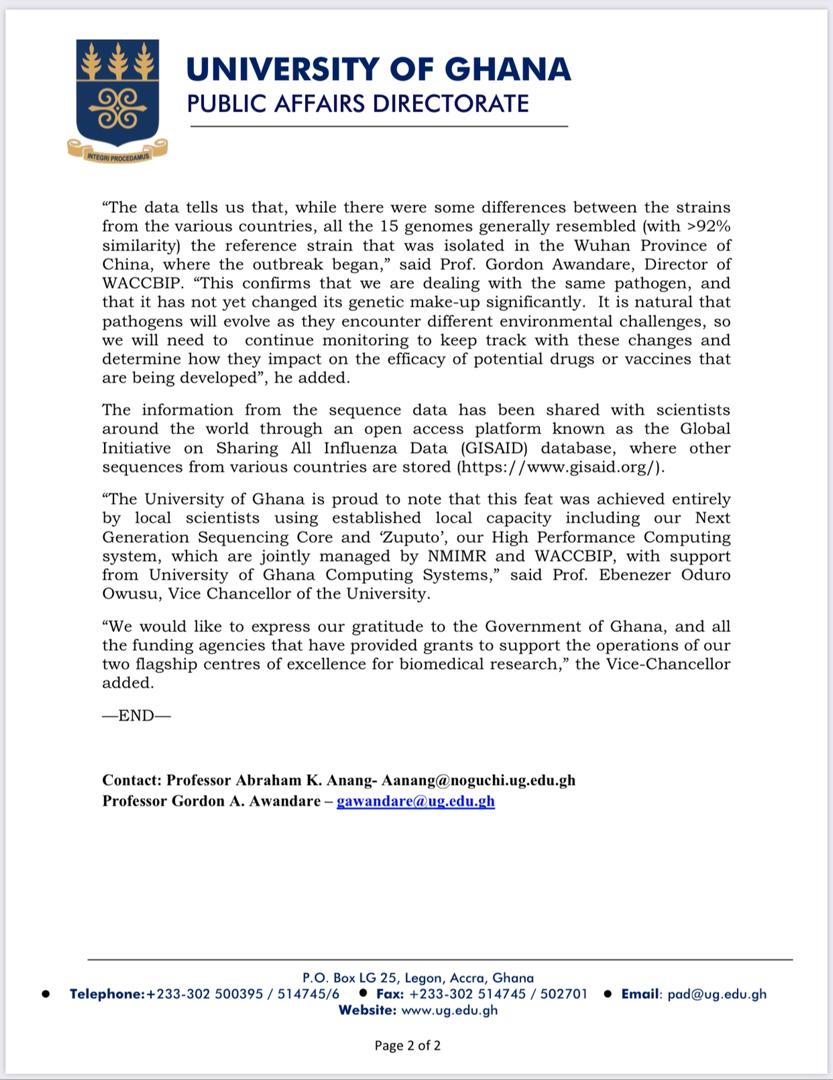University of Ghana scientists make breakthrough into tracking of COVID-19 virus

Scientists at the Noguchi Memorial Institute for Medical Research and the West African Centre for Cell Biology of Infectious Pathogens both at the University of Ghana have obtained information about the virus responsible for the COVID-19 pandemic that has affected many countries globally.
A communiqué from the Public Affairs Directorate of the University of Ghana indicates that the scientists analysed 15 samples from some selected cases in Ghana to gain a comprehensive understanding of the differences of the virus in the country.
The samples were taken from travellers from UK, Norway, Hungary, India, United States, and the United Arab Emirates as well as nine from persons who had no history of travel and believed to have had community infections.
Per the statement, the Director of the West African Centre for Cell Biology of Infectious Pathogens, Professor Gordon Awandare is stated as saying that while there were some differences between the strains from the various countries, all the genomes have a resemblance to the strain isolated in the Wuhan Province where the outbreak began.
Read the statement below:


What is genome sequencing?
Genome sequencing is the process of determining the complete DNA sequence of an organism’s genome at a single time.
Sequencing the genome is an important step towards understanding the virus responsible for COVID-19.
This work represents a valuable shortcut, helping scientists find genes much more easily and quickly.
By being able to study the entire genome sequence, scientists will be able to understand how the genome as a whole, works – how genes work together to direct the growth, development and maintenance of an entire organism.





